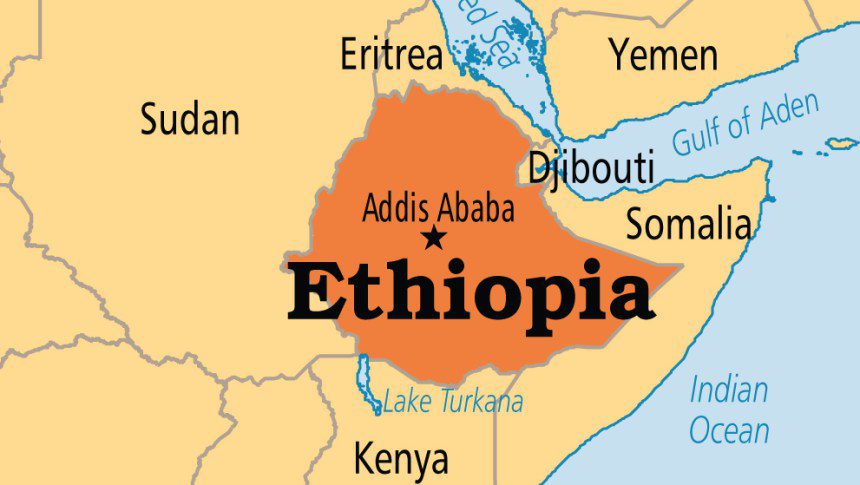The situation in Ethiopia’s Tigray region is “worrying and volatile” as fighting continues between federal forces and the TPLF (Tigray People’s Liberation Front), and affiliated militias on both sides, U.N. High Commissioner for Human Rights Michelle Bachelet said on Wednesday.
The hidden war broke out on November 4, 2020 after Ethiopian Prime Minister Abiy Ahmed announced a military offensive against TPLF, a powerful ethnically based political party that dominated the country’s federal government for almost 30 years, until he came to power in April 2018.
Even though Abiy, the winner of last year’s Nobel Peace Prize, on November 28 declared victory after the national army captured Mekele-Tigray’s capital, fighting continues in areas surrounding towns like Sherero, Axum, Abiy Addi, and the borders between the Amhara and Tigray regions, APA has verified.
Last week, the United Nations said the continued clashes between the two forces have hindered aid deliveries and complicated efforts to reach hundreds of thousands of people who are in dire need, despite a deal granting UN stafferes access to territory under federal control.
Prime Minister Abiy Ahmed told the parliament early last week that Mekele had been captured “without civilian casualties and destruction of property”, a claim TPLF leaders denied.
Thousands of troops have been killed in Ethiopia’s embattled Tigray region, Getachew Reda, a senior adviser to the Tigray leader said in an interview with the regional TV.
Several hundreds of troops from both sides have been killed and their dead bodies have not been collected yet in west of Tigray where federal troops along with Special Forces and militia of the Amhara region fiercely fought against troops who were loyal to TPLF, Eyewitnesses told APA.
The Amhara regional government has set up new administrative structures in Wolqaite Tsegede Tselemt, Alamata, Humera and Raya zones which were considered as part of Tigray region before the conflict.
The Amhara regional government accused TPLF of forcefully grabbing these lands and using heavy political and military muscle to take control of Ras Dashen, the tallest mountain in the country.
There are fears among the Ethiopian people and government that the Tigray and Amhara regions would enter into prolonged conflict over ownership rights of those lands after this conflict.
With the leaders of the Tigray People’s Liberation Front on the run in rugged territory, fears of a drawn-out conflict continue. But with communications and transport links still largely severed to the region of six million people, it’s difficult to know the situation on the ground, including the extent of popular support for the TPLF and the number of people killed.
The federal government has launched a manhunt since nearly two weeks but managed to surrender two amid rumors that some of the fugitive leaders were killed or wounded during air strikes on their last stronghold in Kola Temben, a rural place about 70 km east of the regional capital.
The federal army and police force are chasing the fugitives to bring them to justice, restoring law and order, guaranteeing our citizens in the affected areas have unfettered access to humanitarian aid” and resettling refugees and repairing infrastructure, Abiy’s office said in a statement.
Prime Minister Abiy accused the fugitive TPLF leaders of using thousands of their hostages including military officers as human shields to avoid airstrikes against them by the federal army.
Retreating troops of TPLF are believed to have taken more than 10,000 hostages from the disputed Raya and Alamata areas. The hostages are all ethnic Amhara people who were living in Southern Tigray under the previous border demarcation.
African Press Agency (APA) has been unable to verify claims by either side in the conflict since phone and internet connections to the Tigray region are down and access to the area is strictly controlled.
Ethiopian government spokesman Redwan Hussein didn’t immediately respond to a question about the current estimated death toll in the conflict.
This week, Ethiopia rejected interventions of a third party to probe into the deadly conflict in Tigray region.
The rebuff came in response to the calls from some international groups that an independent investigation must be made on the month-long conflict between the central government and the rebellious TPLF.
The Tigrayan capital, Mekelle, a city of half a million people, is “basically today without medical care,” according to the director-general of the International Committee for the Red Cross, Robert Mardini.
In a Twitter post on Wednesday, Mardini said the city’s Ayder Referral Hospital has run out of supplies, including fuel for power generators.
Ayder, the main hospital in Mekele is paralyzed. No supplies, no fuel, no running water. Doctors and nurses have suspended intensive care services and are struggling to do routine care like delivering babies or providing dialysis treatment.
Addis Ababa claims an interim administration which is set by Prime Minister Abiy is working to fix damaged electricity and telephone infrastructures across Tigray region.
Redwan said that a contingent team has been already sent to Tigray’s Mekelle, Axum and Adigrat to make sure that telephone and power be reconnected and reconstructed.
MG/abj/APA


